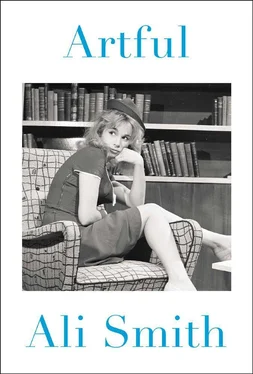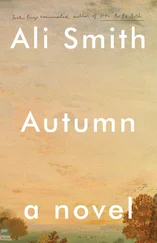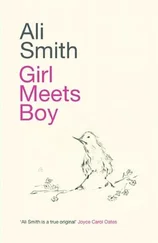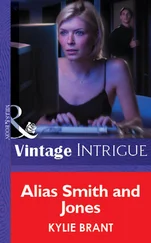2. Hello my darling, how are you? I hope you are very well, are you?
I sat up. I read that title over again.
Hello my darling, how are you? I hope you are very well, are you?
Below it, you had typed up the following, in a slightly smaller size of typeface like you did when you were quoting someone, and as if it were part of your talk.
I mean, seriously, what are the chances of you ever reading this essay? ha, essay happens to be one of the words I found in Chambers Dictionary when I looked up offer, next to the word attempt. Attempt, essay, offering. If you ARE reading these offerings, remember, they’re just attempts. You know I can’t do argument (apart from with you, I mean — we do have some really good arguments, I’m quite proud of some of them ).
Anyway a minute ago you were in here trying to persuade me to write about Oliver the musical. See above. I’ve quoted Consider yourself and have riffed it in (in a critically really unproven way, may God forgive me) with Shakespeare and Burns especially for you, will that do?
One of the reasons I’m writing this is that I was rather harsh with you just now. I’m sorry.
It’s actually because you nearly caught me.
You don’t know. You think I’m in here working really hard and listening to Beethoven on the headphones, when I’m actually sitting looking online — Not looking up porn (though I have done, and it’s interesting to; an awful lot of take and not much give, not much edge, pretty standardized form, and, from what I can see, bloody well endless) — no, I’m watching a blonde girl singing and dancing in countless bright 60s film sets.
What — a sea-change? no, I’d never be able to get that much distance on my true character this late in life, no, it all started because I was thinking about Antigone, the girl from Sophocles’s Theban Plays who tried to bury her dead brother, but her dead brother had been declared a traitor, so her uncle the king, who’d ruled this burial against the law, condemned Antigone to death for breaking it, then decided he’d bury her alive instead, put her in a cave and wall up the mouth, a death that wouldn’t look quite so bad to the populace. I was trying to remember a quote, I can’t find it, I don’t know whether it’s in one of the Sophocles translations or Anouilh wrote it or Brecht or maybe it’s in Heaney’s version, or maybe I’ve even just made it up. But what I think I remember her saying is something like: being alive is nothing, it’s trivial, compared to all the not-being-alive we did before we were born and the not-being-alive we’ll do after we’re dead.
And for some reason that made me think about the woman Colette describes, Amalia X, that good comic actress of road companies, and I found myself hoping it was true, hoping it really happened, the journey between the lovers that she takes.
Then I wondered if Amalia X, who I’m not even sure existed, ever found herself playing Antigone.
For some reason I was sitting here furious with longing for her to have played all the parts, all the comic and the tragic and the Imogens and the Hermiones, I wanted her to be Hermione and Perdita at once, then I wanted her to be Prospero too. I was suddenly in love with her versatility, full of energy from imagining it.
Then I began to wonder if there was an actress alive now who was versatile enough to be Amalia X and Antigone, to play all the parts, the highs and the lows, the Consider yourself songs and the being-walled-up-till-everybody-kills-themselves, so I typed into the Google search box three or four things all together one after the other to see what would happen, I typed in Antigone first, then off the top of my head the names of a bunch of musicals with strong female leads, Evita Sound of Music Cabaret , and I pressed search.
What happened next is unbelievable: it actually came up with someone. The first thing on the screen was the name of a Greek woman (dead now, she died in the mid-90s) who played ALL FOUR in her time, Antigone, Evita, that mad pure Julie Andrews nun with the guitar, and the gorgeous debauched Sally Bowles — as well as Shirley Valentine and Shaw’s Pygmalion and Aristophanes’s Lysistrata and the leads in My Fair Lady and in Tennessee Williams’s Sweet Bird of Youth, and dressed up as a boy in a Greek film musical version of Romeo and Juliet, and more. There’s one film in which she seems to be playing herself as twins, one is rich, living in a chic uptown apartment, and one is poor, living hand to mouth in a hovel, selling combs on the street and avoiding the police. One gets mistaken for the other, of course, like in Shakespeare, and Twain. The poor one looks a bit like your Nancy from the Oliver film, and at one point, like her, she sings a song in a room full of lost boys — except the poverty round her actually looks a lot like realism.
Anyway she was apparently a legend in Greek cinema and theater from the 50s all through the 60s and 70s, into the 80s, even the 90s, all through the huge changes in Greek politics, she was the Greek Monroe, Bardot, Loren, Hepburn (Katharine and Audrey), and she seems to have been like all of them rolled into one, and had a kind of Greek pastry and a doll both named after her, and had a kind of Elizabeth Taylor/Richard Burton relationship with her leading man, and almost with a Greek prince too at one point, I gather.
Out of curiosity I watched a few clips from some films.
What I knew immediately was how much you would really love these films.
So here’s a small present for the future from the past, from me to you with love. A lot of it is in Greek but if you type this in she’ll come up singing: Aliki Vougiouklaki.
I can just see you watching these. It gives me such pleasure to imagine it. & to imagine you imagining me here in the evenings, deep in some piano concerto, and me actually watching bits of old Greek musical from the 1960s ha ha! that gives me even more pleasure. Like we’ve swapped sides of the mirror. Aliki by the way is Greek for Alice.
When you came in just now, what I was doing was watching a bit from a film called Modern Cinderella (I think), about a girl who’s so poor she can’t even afford a bottle of milk, but then by chance and by cleverness she gets a really good job and the first thing she does is phone up the grocer she owes money to, pay her bill, and order all the groceries her family hasn’t been able to have for weeks — better than that, she orders the best things the man has in his shop, and the next scene is her whole neighborhood at a party, that’s what I was watching. She sings a song, it’s called (in Greeklish) Ypomoni.
Just a passing thought, to apologize if I seemed or seem harsh, I’m really sorry, and to explain why I didn’t want you to see the screen — i.e., I wasn’t really working, and I was suddenly unbelievably embarrassed in case you found out I wasn’t, and even worse, that instead of working I was trawling the net for things you’d love.
I’m sorry if I seem impatient. I am impatient. If I were more patient I’d sit and work this into the talk — importance of clowning, what characters do with what they’re given, empathy of observer, gift at heart of transformation story, clowns in Shakespeare, Josephine Baker and her use of comic mask, but what the fuck. Talking of what the fuck, I thought of you when I was writing about Freud’s flowers. And there was a quote from a Michael Ondaatje novel I wrote down and was keeping for this talk and haven’t used, but it really makes me think of us, well, makes me think of you. ‘She had an eager spirit. One mentioned a possibility and she met it, like the next line of a song.’
Wherever you are all the trees above your head are flowering.
You’re next door right now.
Читать дальше












